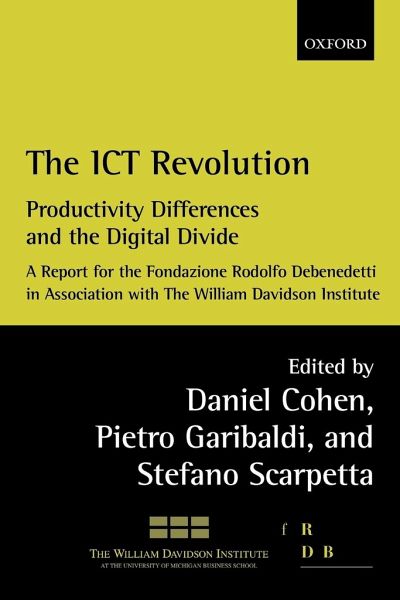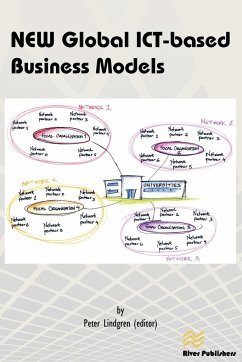
The Ict Revolution
Productivity Differences and the Digital Divide
Herausgeber: Cohen, Daniel; Garibaldi, Pietro; Scarpetta, Stefano
Versandkostenfrei!
Versandfertig in 1-2 Wochen
54,99 €
inkl. MwSt.

PAYBACK Punkte
27 °P sammeln!
The view that the Internet and the information and communication technology (ICT) revolution would deliver a frictionless economy without recessions is, at least for the time being, dead. This book takes stock of the ICT revolution, going well below the surface to ask and answer a few key questions: Did the ICT revolution contribute to the recent divergence in the growth record? And if this is the case, how and why were some countries better equipped to exploit the potential of ICT? The naïve approach to the Internet views e-commerce as a means to achieve a perfect world of competition. By ma...
The view that the Internet and the information and communication technology (ICT) revolution would deliver a frictionless economy without recessions is, at least for the time being, dead. This book takes stock of the ICT revolution, going well below the surface to ask and answer a few key questions: Did the ICT revolution contribute to the recent divergence in the growth record? And if this is the case, how and why were some countries better equipped to exploit the potential of ICT? The naïve approach to the Internet views e-commerce as a means to achieve a perfect world of competition. By making information cheap and readily available, it should allow the affluent consumer to raise competitive pressure on firms, help the firms themselves to put competitive pressure on their own suppliers, and so on. For the poor countries, the story goes, the Internet should lower the barriers to entry to rich countries' markets, and foster their inclusion in world markets. However, the theory of economic geography does not support the idea that geography becomes irrelevant as the cost of distance is reduced. Instead, when investigating the impact of the first communication revolution in the nineteenth century, we observe quite the opposite trend. Rather than fostering the forces of "dispersion" across the location of economic activity, railways, the telegraph, and the telephone have produced instead an extraordinary concentration of economic activities: the forces of "concentration" have been much more powerful than the forces of dispersion. Understanding the new forces of agglomeration and the forces of dispersion in the new Internet economy is one of the major themes of this book. Drawing on a wide range of data, it assembles the work of two teams of leading economists in the ICT field. Part 1, the work of the first team, focuses on the role that the ICT revolution played in advanced countries to grow output and productivity at macro, industry, and firm levels. Part 2, the work of the second team, assesses whether or not the digital economy will indeed result in a more competitive and more equal world.














